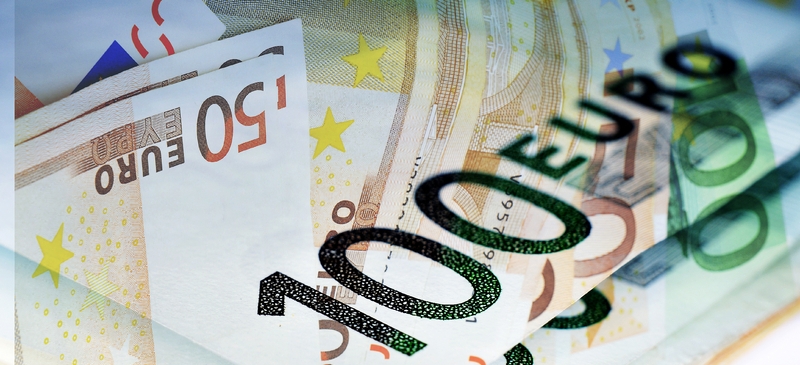
Beware the strong euro
The claim may seem perverse, when the euro has barely crawled off its record lows, but there is a good case for saying that America rather than Euroland faces a looming currency crisis. In fact, once the markets wake up to this new economic reality, there is a real possibility the dollar will decline in an even more spectacular fashion than the euro has during the last 18 months.
The logic is straightforward. The dollar's inexorable rise was based on the belief that the US economy as a whole, and its equity markets in particular, could continue to defy gravity. Investment funds have poured out of the euro-zone, attracted to the superior returns in US markets, bolstering the dollar and causing the euro to plummet. The strong dollar has itself helped to preserve the illusion of the supremacy of US markets, and ensured increased returns for international investors.
But once the markets begin to perceive the full extent of the series of sharp rate rises that is needed to control the booming US domestic sector, the turnaround could prove unexpectedly rapid. And when US stock markets begin to correct, the dollar will also slide. The US economy will become trapped in a vicious circle, with a falling dollar putting pressure on the Federal Reserve to raise rates further, to counter the risks of growing inflation. That will in turn increase the chances of the US economy sliding into recession, and consequently hurt equity markets and the dollar.
While most currency analysts continue to argue that the euro will remain weak for the foreseeable future, a few are beginning to seriously question the received wisdom. Brian Reading, an economist at Lombard Street, believes that the euro could appreciate by as much as 50 per cent during the next twelve months - more than reversing its slide since the beginning of 1999. For the markets, the message for next year is 'beware the strong euro'.
The real lesson of this all-too- plausible scenario is that serious currency misalignments expose all sides to economic risks. The dollar's excessive strength may keep US inflation down in the short term. But it exaggerates the imbalances in the US economy, by over-stimulating its domestic sectors and by helping to inflate the bubble in US asset markets. A too-sharp appreciation in the euro over the next year could create similar policy dilemmas for the European Central Bank (ECB), and potentially undermine the recovery in parts of the European economy.
International policy-makers, however, have so far displayed a marked reluctance to take action. The G7 countries sit on huge reserves of $700 billion. Unilateral intervention has largely gone out of fashion after the debacles of the early 1990s. Yet there is little doubt that even a simple verbal commitment to concerted action by the major economic powers could still influence the currency markets.
However, in the US, with the presidential elections rapidly approaching, political concerns predominate. If the administration tried to force the dollar down, the Fed would have to accelerate its programme of rate rises. That would be politically unpalatable for the Clinton administration, even if it resulted in a softer economic landing in the medium term. As Gordon Brown would also admit, a strong currency may damage exporting companies, but it ensures that most voters feel wealthier, thanks to cheaper imports or holidays abroad.
While the US remains lukewarm to the idea of intervention, there is little reason to expect Europe to act on its own. After all, the euro's decline has so far generated political rather than economic problems. Although the ECB has in recent weeks begun to express some concern about the potential inflationary consequences of a falling currency, inflation remains relatively subdued and the Bank is under little pressure to raise interest rates aggressively. A number of European countries - particularly Germany - continue to enjoy rising exports as a result of the falling euro. Rather, euro weakness has been an embarrassment for the European leaders who promised the euro would be strong. By far the most damaging impact of the euro's decline is the sign that the single currency is losing some credibility amongst Europe's citizens.
Ironically, it is in Britain - far less able than Euroland or the US to move currency markets - that the debate about intervention has been most intense. But the focus has been on the virtues or otherwise of a strong pound and a weak euro, rather than on the broader question of currency misalignments.
Yet as Peter Mandelson has noted, in a widely misinterpreted speech, the point is less whether the pound is weak or strong. Rather it is the currency volatility which makes life difficult not just for investors and exporters but also for governments and central banks charged with pursuing stable economic policies. As the Bank of England is acutely aware, the pound looks almost as vulnerable as the dollar to a sudden surge in the euro, which would oblige it to raise UK interest rates further.
Implicit in Mr Mandelson's argument is the assumption that a clear commitment to joining the euro at a lower rate may offer a long-term solution. But the UK government's continuing trepidation on the euro now means it is more difficult for politicians to talk down the pound. There is no guarantee that the markets would blindly follow a government steer on the currency in the near future. Trapped between two great currency blocs, the government looks powerless to ease sterling's problems without the support of Europe and America. If the government is serious about taking action, Gordon Brown should phone Washington, Berlin and Paris as soon as possible to arrange concerted intervention in the foreign exchanges, and head off the dangers of a strong euro.
